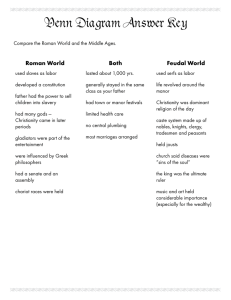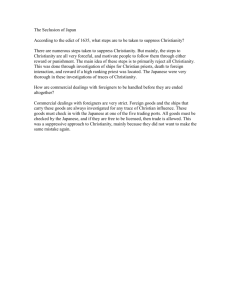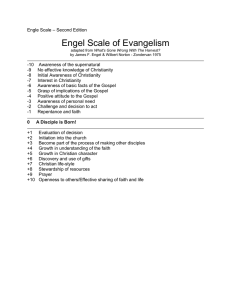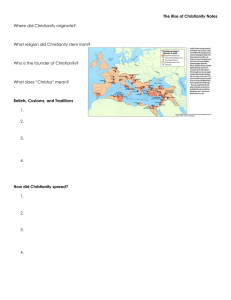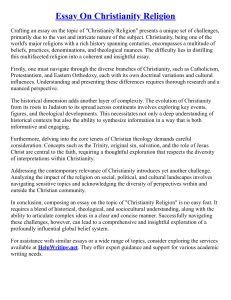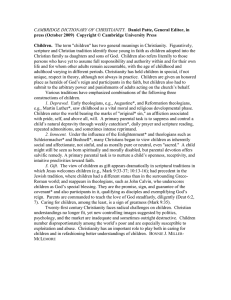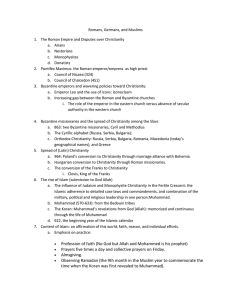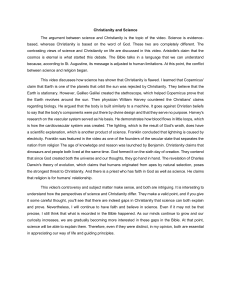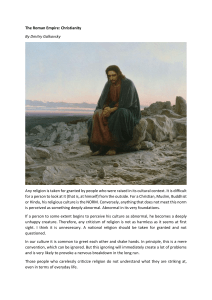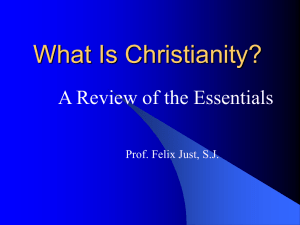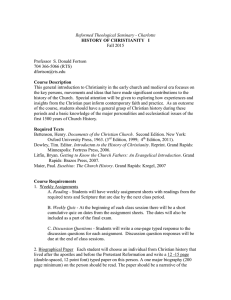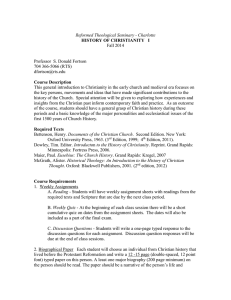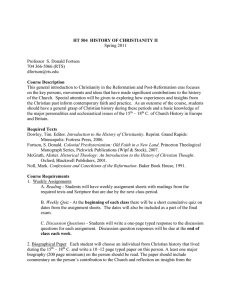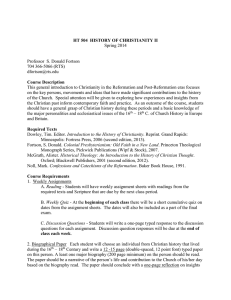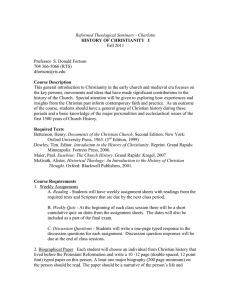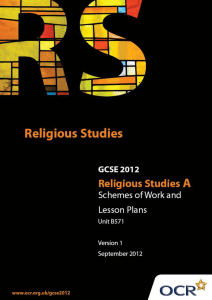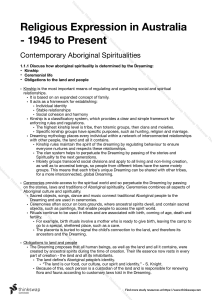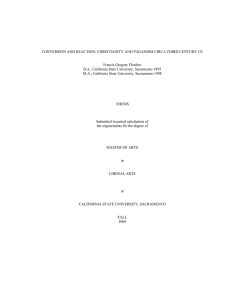Rise of Christianity.doc
advertisement
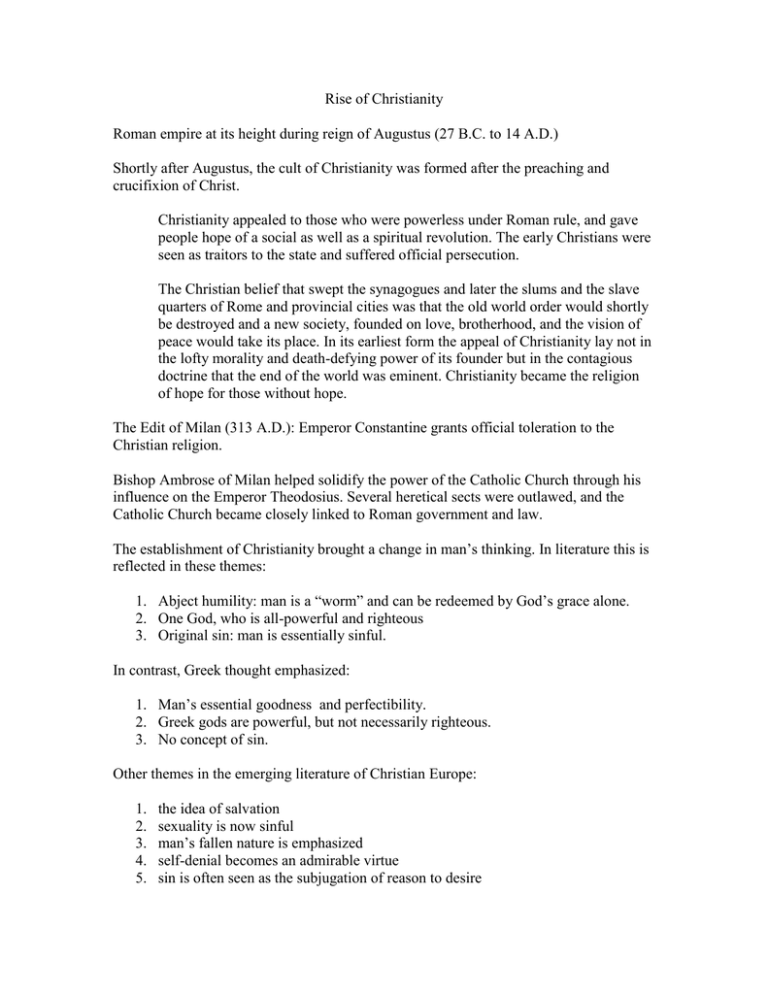
Rise of Christianity Roman empire at its height during reign of Augustus (27 B.C. to 14 A.D.) Shortly after Augustus, the cult of Christianity was formed after the preaching and crucifixion of Christ. Christianity appealed to those who were powerless under Roman rule, and gave people hope of a social as well as a spiritual revolution. The early Christians were seen as traitors to the state and suffered official persecution. The Christian belief that swept the synagogues and later the slums and the slave quarters of Rome and provincial cities was that the old world order would shortly be destroyed and a new society, founded on love, brotherhood, and the vision of peace would take its place. In its earliest form the appeal of Christianity lay not in the lofty morality and death-defying power of its founder but in the contagious doctrine that the end of the world was eminent. Christianity became the religion of hope for those without hope. The Edit of Milan (313 A.D.): Emperor Constantine grants official toleration to the Christian religion. Bishop Ambrose of Milan helped solidify the power of the Catholic Church through his influence on the Emperor Theodosius. Several heretical sects were outlawed, and the Catholic Church became closely linked to Roman government and law. The establishment of Christianity brought a change in man’s thinking. In literature this is reflected in these themes: 1. Abject humility: man is a “worm” and can be redeemed by God’s grace alone. 2. One God, who is all-powerful and righteous 3. Original sin: man is essentially sinful. In contrast, Greek thought emphasized: 1. Man’s essential goodness and perfectibility. 2. Greek gods are powerful, but not necessarily righteous. 3. No concept of sin. Other themes in the emerging literature of Christian Europe: 1. 2. 3. 4. 5. the idea of salvation sexuality is now sinful man’s fallen nature is emphasized self-denial becomes an admirable virtue sin is often seen as the subjugation of reason to desire

